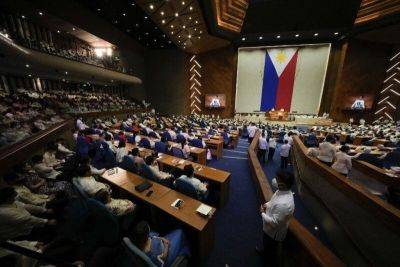Need to review, change permitting process for reclamation highlighted in Senate hearing
MANILA, Philippines — There is a need to review and rectify flaws in the government’s process for approving reclamation projects in order to safeguard both the environment and communities, a senator said Wednesday.
The Senate is looking into the impacts of reclamation activities on coastal and marine ecosystems and communities, and the permitting process for these projects after President Ferdinand “Bongbong” Marcos Jr. ordered the suspension of 22 reclamation projects in Manila Bay.
Sen. Cynthia Villar, who heads the panel on environment, natural resources and climate change, said that there must be legislation that effectively regulates reclamation activities and ensures that these projects are “not arbitrary or capricious.”
“There must be something wrong with the process. We want to review the processes and change whatever is wrong,” Villar said.
The initiation of a reclamation project begins with the proponent, usually a local government unit, approaching the Philippine Reclamation Authority, which will issue a memorandum of agreement.
Meanwhile, the role of the Department of Environment and Natural Resources is to issue an environmental compliance certificate and an area clearance.
An area clearance is a document that declares a site suitable for reclamation. An ECC certifies that the proposed project will not cause significant environmental impacts and that the proponent has complied with the requirements of the Environmental Impact Statement system.
The current arrangement mandates that all ECCs for environmentally critical projects must bear the signature of the secretary. According to Environment Undersecretary Juan Miguel Cuna, the task of signing the ECC was previously delegated to the EMB director, but “it







